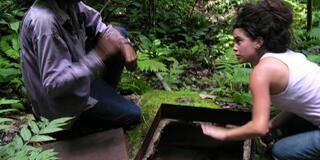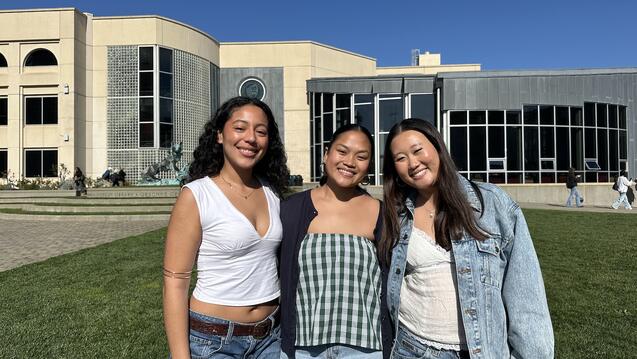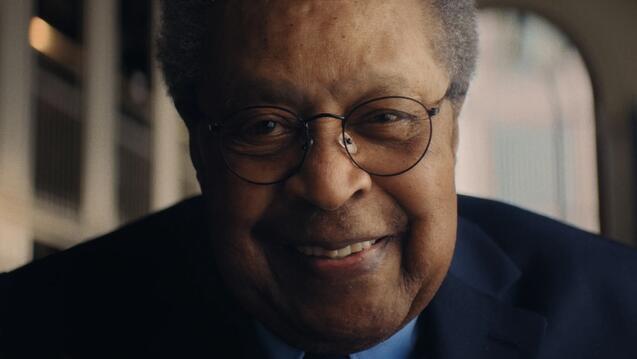Winner of Prestigious NSF Fellowship Studies at USF

When Lisa Pezzino earned a prestigious fellowship from the National Science Foundation, she had the chance to study at any university in the country. She chose the University of San Francisco.
Pezzino, now a student in USF’s master’s program in environmental management, was looking for a program that focused on more than the science aspect to environmental studies. She was drawn to what she describes as USF’s “holistic” approach to studying the environment, integrating a strong science aspect with coursework on such topics as environmental law and sustainable environmental economic theory.
“I wanted a more well-rounded education, not a straight environmental engineering program,” said Pezzino, who is in her second year of the two-year program and holds a bachelor’s degree in civil and environmental engineering. “When I came across USF’s program, it just felt perfect for me.”
The fellowship, awarded to about 1,000 students nationwide each year, is given to those who want to pursue a degree in the sciences and contribute to society in a positive way, whether through an invention, research, or related work. The fellowship pays for most of Pezzino’s tuition (USF is covering the remainder) as well as a stipend for living expenses.
Pezzino is the first NSF fellow in the environmental management program at USF.
“It’s unusual for our program because we don’t have a research focus,” said John Callaway, program director and associate professor of environmental management. “The program has been around for 30 years and is one of the longer running environmental management programs, but it has more of a professional focus. We’re really excited that she was interested in our program and that there is an opportunity for her to do research related to what she and faculty are doing.”
As part of the fellowship, Pezzino is completing a master’s thesis instead of a master’s project. The thesis will be based on original research she began gathering data for last summer—she is helping restore native Hawaiian fishponds in the southeast corner of Oahu. As part of that, she is studying the local hydrology, specifically examining the flow of groundwater that had entered fishponds before infrastructure projects diverted it.
“The program has allowed me to further explore an interdisciplinary approach to environmental issues, and has provided me the opportunity to work on a project that takes me out of the laboratory and into the community,” Pezzino said. “In my opinion, this is an important step for the future of science and effective resource management.”


